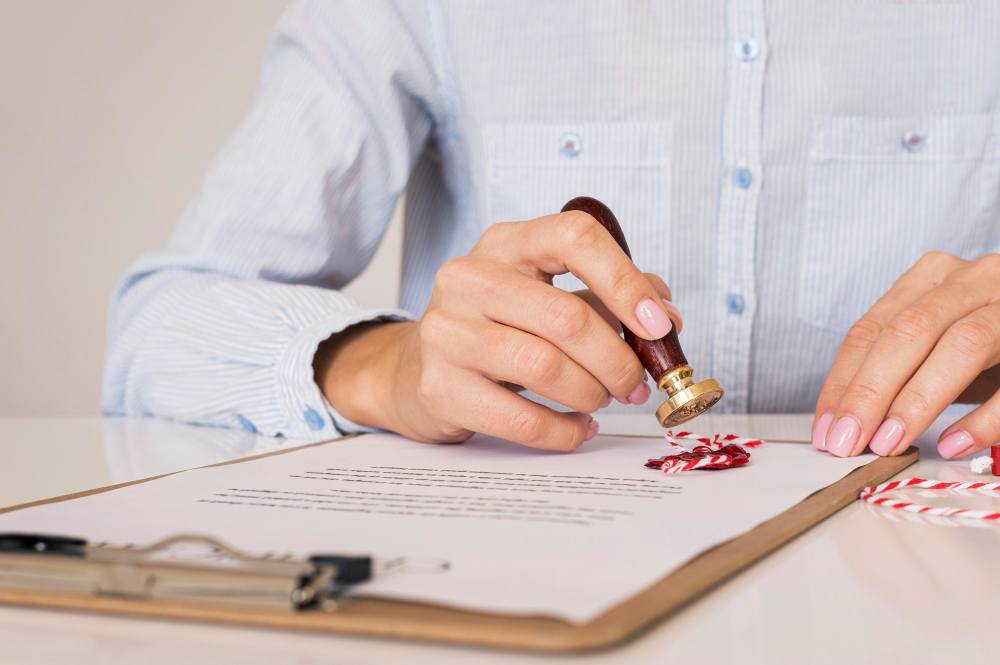You’ve just had a groundbreaking idea that could change the world. It’s innovative, and inventive, and has the potential to revolutionize entire industries. Naturally, you want to protect your brainchild from being replicated or misused. In the United Arab Emirates (UAE), a recent development in patent law could be your knight in shining armor. But how do you navigate this new patent regime? Fear not; we’ve got your back. Join us on this legal journey as we break down the UAE’s evolving patent landscape.

Understanding the Legal Framework: Federal Law No. 11 of 2021
Our journey begins with Federal Law No. 11 of 2021, a pivotal moment in the UAE’s intellectual property history. This law is all about “the regulation and protection of Industrial Property Rights.” But what does it cover? Well, let’s delve into its core elements.
The law repeals the former Patent Law, Law No. 17 of 2002, and casts its protective net wider. It doesn’t just focus on patents; it also embraces industrial designs, integrated designs, undisclosed information, and utility certificates. This significant development was published in Official Gazette no. 703 on 31 May 2021 and is poised to take effect once the Executive Regulations are unveiled.
Patentability Criteria: Invention, Innovation, and Industrial Application
The heart of this new patent regime lies in Article 5 of the Law. It outlines the criteria for obtaining a patent, emphasizing that “a patent shall be granted for each new invention contrived from a creative idea or creative enhancement, forms an inventive step, and is capable of industrial application.” Gone are the days of “letters patent”; we now have a defined concept of an “inventive step.” An invention must not be “axiomatic” or obvious to the “ordinary craftsman” based on the state of the art. This aligns UAE patent law with international standards.
But here’s the kicker: an invention can stem from a new application or a modification, enhancement, or addition to an existing invention, granted a patent, provided it adheres to the law’s terms. Executive Regulations might shed more light on this aspect.
The Grace Period: Protecting Your Novelty
Patent law aficionados know that an invention’s novelty is paramount. An invention must be “new,” meaning it hasn’t been disclosed to the public before the filing date through any medium. The UAE introduces a novel twist here – a grace period of 12 months under Article 5(4) of the Law. During this window, disclosures by the inventor won’t affect novelty. If your publication is cited as prior art during priority filing, fear not; it won’t jeopardize your UAE application, just as it works in the United States.
Subject Matter Exclusions: What Can’t Be Patented
Article 7 of the Law provides a list of subject matter exclusions, expanding on the former law’s restrictions. Notable additions include plant and animal species, research on these species, and “software.” Yes, you read that right, software is explicitly excluded from patentability. While it doesn’t provide further guidance on exceptions, the UAE seems to align with the international stance on software patents.
Accelerated Examinations and Publication of Patent Applications
Article 14 introduces the option of accelerated examinations for “urgent applications.” This could be a game-changer if the UAE joins the Patent Prosecution Highway (PPH) program, enhancing the pace of patent grants.
Previously, UAE patent applications were published only after registration. If an invention meets the patentability criteria, the Ministry will publish the acceptance of the patent grant in the Official Gazette. It brings the UAE in line with international norms, making patent information accessible.
Divisional Applications: Splitting the Bounty
Under Article 16, applicants can now file divisional applications when the original contains multiple inventions within the same scope. This divisional application maintains the original’s filing date. Further details on divisibility await in the Executive Regulations.
Notarization of Assignments: A Noteworthy Hurdle
One challenge that remains is the notarization of assignment documents, which has caused issues for local applicants. Notaries Public often request patent certificates before notarizing the Deed of Assignment, creating a Catch-22 situation. Applicants outside the UAE can bypass this hurdle by using foreign notarized assignments. But for local applicants, a clearer solution is needed.

Infringement and Penalties: Protecting Your Rights
Article 19 of the former Law exempted patent infringement for non-commercial educational or research purposes and for products entering the state temporarily. The new Law expands this to include the use of patents for “medical treatment by a licensed pharmacist.” Infringement penalties have also increased, ranging from AED 100,000 to AED 1,000,000, with potential imprisonment.For those who might find this legal terrain daunting, feel free to consult lawyers in Dubai, especially patent lawyers in Dubai, for expert guidance. Remember that your groundbreaking ideas are in safe hands under this evolving legal framework.
